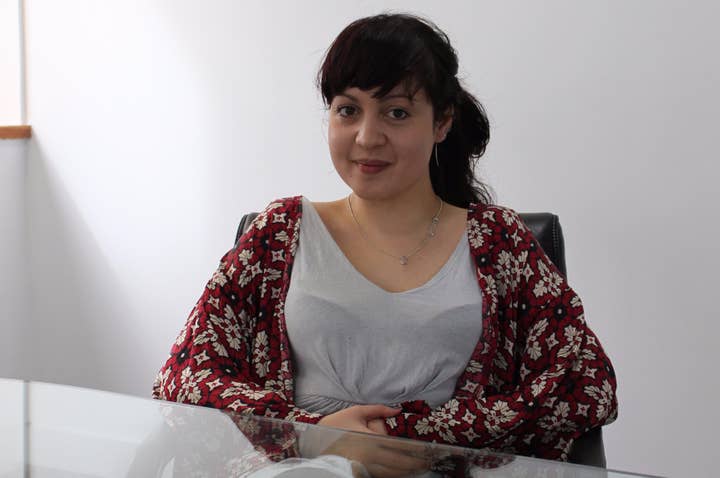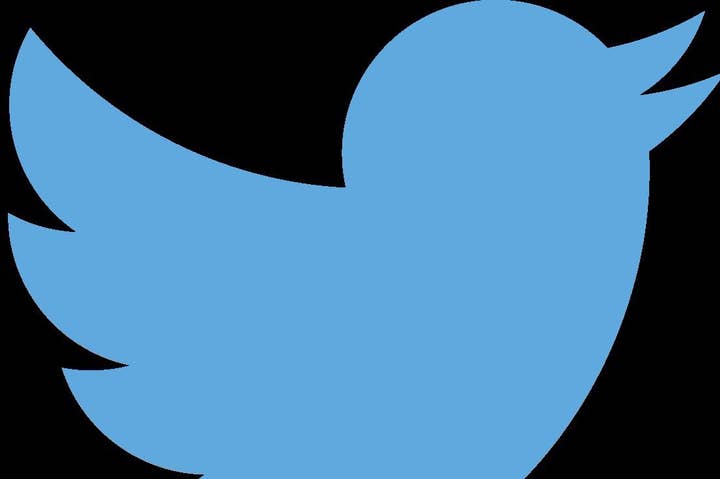Attack of the Indies: How devs can master social media in 5 simple steps
Keith Andrew unlocks the secrets of social media marketing
For any indie studio looking to make its name within the games industry in 2015, the pressure to master social media has become unavoidable. Successful indie outfits make amassing a loyal following across social platforms look a breeze, but for others the prospect of managing their presence across multiple social networks feels like learning an entirely new language.
That's increasingly becoming an unsustainable position. In a market as competitive as video games - and one that's typically dominated by a relatively small suite of major players - the ever-increasing portfolio of social media platforms could and should be an indie outfit's most potent weapon.
It's a subject that was debated on these pages back in September 2014, with proficient developers and marketers alike touting the targeted use of Twitter, Facebook, YouTube et al as the key to connecting to consumers in a more organic fashion than has ever been possible before. Indeed, instead of throwing themselves at the games press, the smart and savvy studios see social media as a way of killing two birds with one stone; you can reach out to gamers on your own terms and, if you generate a bit of interest as a result, catch the attention of the odd games journalist or two in the process. The importance of social media was probably best highlighted by Vlambeer's Rami Ismail who, at the time, quite candidly admitted the Ridiculous Fishing outfit "would not exist today" without the use of social networks.
So why, exactly, is the Vlambeer approach to social media not already the norm amongst indies?"Often it's simply a lack of confidence," offers Natalie Griffith, who founded games PR agency Press Space. "Many developers are over-modest or don't give themselves enough credit for what they're good at or for what's interesting about them. They find it hard to see that anyone would care about anything they have to say so they don't say anything."

As Griffith highlights, it's one thing acknowledging that social media is a tool to take advantage of, but it's quite another to actually do so in an effective fashion. Using social media poorly can do far more harm than not using it at all, meaning tapping into the expertise of the people who use it day in, day out in order to pull together a simple, structured guide focused on how indies can best approach it seems like a valid thing to do. Which is exactly why we've done it, using the insight given to us by some of the industry's guiding lights to distil all such advice down into five key areas:
1. Talk about your game as soon as possible
Knowing when to reveal your concept is a tricky one, and a quandary many developers face when considering making their mark on social media. If you talk about a great new game you're working on, doesn't it stand to reason someone else will steal your idea? It's a subject Vlambeer's Rami Ismail has discussed at length on stage at various events around the world with the Dutch developer having suffered more than its fair share of plagiarism in recent years. Is the solution to keep your ideas hidden from view? Ismail's take is, the more you talk about a game idea, the more you own it, and the more likely the games community will rally to your defence if they see someone stepping on your turf.
"It's never too early to start talking about your game, showing teaser footage, concept art, or other ideas," offers PR specialist Natalie Griffith. "There's no way to fast-track building a fanbase or followers on social media so the sooner you start to build things up, the better chance of success you'll have down the line."
That's a sentiment echoed by community specialist Jane McConnell, currently working at the Manchester-based Pixelbomb Games on mech third-person shooter Beyond Flesh & Blood. "I can say with real fervour that you start [using social media] with your idea - from day dot," argues McConnell. "Proof of concept is enough to run a Kickstarter campaign on, and it's more than enough to start a conversation. If you boil your promotional actions own to that, then you're getting somewhere, and it might be worth remembering if you're a paranoid developer, that having your idea out there with views and feedback can at least serve as dated evidence that it was your idea first."

McConnell suggests that developers start with indie-friendly platforms like IndieDB to break down the barrier between developer and game, with the platform serving as a "ready made place to socialise and garner industry feedback." Then, she sayd, it's time to take on Twitter, "because you can reach your own mates online and offline to start with, make new ones, and there are hashtags ready to push your content to an audiences of tens of thousands already.
"Finally, you need a development log. Capture your creative journey somewhere, and stop caring whether anyone's going to be interested in that moment because, chances are, they will in a few months, or a year down the line. Blogging hasn't gone out of fashion, it's just that it might be easier to do it visually on YouTube or Vine. As you build and grow, it helps you step outside of the trenches of production, and consider milestones and how far you've come."
2. Tailor your social media, tailor your message
Once you've established that social media is something your studio should engage with, the question of how you approach it - the content, the tone, the pitch - suddenly becomes all the more prevalent. Perhaps it's better to consider what you shouldn't do before you pin down what you should.
"There's nothing worse than simply hooking up your Twitter feed to your Facebook page," offers Griffith. "If people follow you on both channels - and many will - then they'll just see exactly the same thing multiple times and you're missing an opportunity to engage them in different ways. There's no exact science and some channels will better suit some games than others, but it's important that you think about where your potential players are hanging out and where they're most likely to want to get their information about your game.
"Twitter's much better for instant quick conversations with people, answering their questions and reminding people of news or other activities that you want them to engage with somehow"
"Twitter's much better for instant quick conversations with people, answering their questions and reminding people of news or other activities that you want them to engage with somehow. It's also great for networking, and building and maintaining relationships with press and other developers, as well as your players.
"Facebook's generally much better for longer form, less reactive posts where you can take the time to engage your fans with more in-depth conversations about things or ask for their opinions or feedback. It can often be a good place to run competitions or polls too. Not every game will suit - or therefore need - a Facebook presence though so think carefully before you commit to sinking time into maintaining one."
As Griffith highlights, Twitter is arguably the most conversational social media platform of all those available. As a result, it's important to use it as a human being: If every time you spoke to a friend in real life they attempted to sell you something, you'd probably stop seeing them. Twitter, in the same way, is not a platform designed to be used solely to sell products. If all you do with your account is tweet links about your game, day after day, chances are you're not going to amass all too many followers. Likewise, if you don't engage in discussions about games beyond your own on Twitter - or, like the rest of the world, post pictures of especially impressive latte art or what you had for lunch that day - then you're missing a trick. Twitter is a social platform that people use to distract them from work, it's not a shopping channel.
"I would recommend developing separate voices for your game brand and for your studio. They're not the same entity, and remember that your studio will always be the more human voice because it's, well, you," adds McConnell. "It's a mappable way of creating the friend-of-a-friend play that provides that the first flash of people who might help actively promote you, who say 'Oh yes, I've heard of you before'."
"The beauty of being an indie is that you're at liberty to both chat informally, and keep things professional and cool"
On the subject of keeping things personal, McConnell recently gave a presentation at a TIGA event in Manchester where she stated that there's "nothing worse than a corporate voice from an independent company". Whether in press releases or social media posts, indie studios should use their independence as an advantage, rather than attempt to ape the bigger boys who, scared of saying the wrong thing, are largely unable to say anything that hasn't been filtered several hundred times by upper management.
"The beauty of being an indie is that you're at liberty to both chat informally, and keep things professional and cool," continues McConnell. "The light hearted tweets remind people that there's a living breathing developer behind it all, not unlike similar creatives their own friends and family. As the Americans say, you have to relate."
3. Keep your eye out for exciting new platforms
Twitter is one of the most powerful tools any social media savvy studio can utilise, but it's by no means the only one. New platforms that enable developers to reach their audience on a personal level are popping up all the time.
"Twitch is an enormous opportunity for developers right now, especially smaller indies without a massive marketing budget but who are trying to build a bit of a groundswell in their community. It's a brilliant way to bring people along with you on the development journey, get invaluable feedback, and broaden your reach," details Griffith. "It's not that difficult to do and you needn't be an expert in front of the camera either - simply doing a voiceover explaining what people are seeing, or talking through something you're building is still really interesting to people and creates great content that you can save and share elsewhere too."
"Twitch is an enormous opportunity for developers right now, especially smaller indies without a massive marketing budget but who are trying to build a bit of a groundswell in their community"
This article lands on GamesIndustry.biz just as two new platforms - live streaming apps Meerkat and the Twitter developed Periscope - are also shaking things up. "It's always worth being aware of the up-and-coming channels too," Griffith goes on, noting that the aforementioned streaming platforms are a great way to experiment with streaming before taking on an entire Twitch channel.
"Likewise, game brands are doing some clever stuff on Snapchat and Instagram right now too - one of my clients is establishing a presence on both of them at the moment and there's bags of potential. Games are an inherently visual media so making the most of very visually-led platforms like that can get you seen by a very different type of player."
4. Analyse and monitor how people are responding
Whether or not you adopt all such advice wholly or just in part, social media is a two way street. Whether you're replying to posts on IndieDB or taking question from gamers on a Twitch stream, it's important to engage those making an effort to connect - not just because social media is, by definition, social, but also because it enables you to connect with your consumer base and learn what works for them and what doesn't.
All too often indie developers see social media as something they know they should do without truly grasping why. In short, Twitter, Facebook et al enable you to cut out the middle man: No longer do developers need to bow down to the consumer press and court reviews in order to reach gamers - they can do it themselves, arguably in a far more effective fashion. Part of this engagement, however, involves paying attention to the reaction you get, whether through full blown analytics tools or, on a case by case basis, individual feedback.
"It's always worth paying attention to how your users are responding to what you're sharing, then adjusting your strategy accordingly," clarifies Griffith. "Whether you have the resources to do this formally by digging though analytics data or you just do it anecdotally on an ad hoc basis - you really should do something or you could be way off base with what your followers want to see, and therefore achieve nothing.
"An absence of response doesn't always mean you're doing the wrong thing - you have to look at the big picture of what you're achieving across all channels before you start from scratch"
"An absence of response doesn't always mean you're doing the wrong thing - you have to look at the big picture of what you're achieving across all channels before you start from scratch but you should never ignore a dormant feed and assume that everything's okay if you're not getting much response or engagement."
It's knowing what to do when you've identified that your current strategy isn't working, of course, that's the real challenge. It's at this point, if you're truly clueless as to why your approach isn't increasing engagement and you feel you're utilising them in the most, natural way possible, it may be time to seek outside advice - if your budget allows. "Social growth is its own type of development, which means [if it's going wrong] you go back to fix the bug. This is why having a professional can help," adds McConnell. "An organic approach works best. If you can afford the time as a developer, every day, over outsourcing it, then do it yourself. Ideally, marketing would be a part of your business plan from the start so the costs for wages and output make sense. Obviously I'd say outsource it, and make your own personal profile too where you can share other things as well as information about your game."
5. Most importantly of all, be human
All of the above could, if you're so inclined, be condensed down into one short and succinct statement: be a human being. It's important to remember that even those interested in your game don't follow you on Twitter or like your Facebook page because they want to be bamboozled with links pushing where they can buy it every few minutes. In this Kickstarter age, gamers are just as interested in the people behind a game as they are the game itself, especially in the case of indies, where there's the opportunity to connect on a far more personal level than with a big, faceless developer or publisher.
"I always advise people to split their Twitter activity into thirds - one third 'broadcasting', like announcing stuff, sharing your news, one third 'talking', such as having conversations with people, answering questions, asking for feedback or advice, and one third 'sharing', like giving your knowledge or advice to others, amplifying their messages, promoting things other people are doing," concludes Griffith. "Drop the more light-hearted stuff in between all that, to show people your personality, but make sure you keep that third, third, third split."
"much of your success on social media will be determined by how enthusiastic you are about doing it. If you approach social media with any sense of reluctance at all, chances are your efforts will be as tepid as they are ineffective"
Like game development itself, however, much of your success on social media will be determined by how enthusiastic you are about doing it. If you approach social media with any sense of reluctance at all, chances are your efforts will be as tepid as they are ineffective. If you see every day, every moment, as an opportunity to say something about you or your developer, then you're approaching it in the right way. Enjoy a mammoth breakfast while at GDC in San Francisco? Tweet a picture of it. Having a problem with a tool in Unity? Write a blog post about it. Stuck in traffic on your way to Develop? Vent with a Vine.
In essence, the key to social media is treating it like an open channel to your thoughts and your experiences both in the world of game development and outside of it, too. Obviously tweeting about a marriage break up or other suitably personal problems would likely not be advised, even if using a personal account rather than a company-based or game-based one, but it's important to let gamers in. Get involved in the discussion. Be present.
"Drop the cynicism because having that attitude patronises the people who will be playing your game. Just use social media," concludes Jane McConnell. "For the most part, social media is a tool that works - but you still have to at least make a decent game to justify it!"

